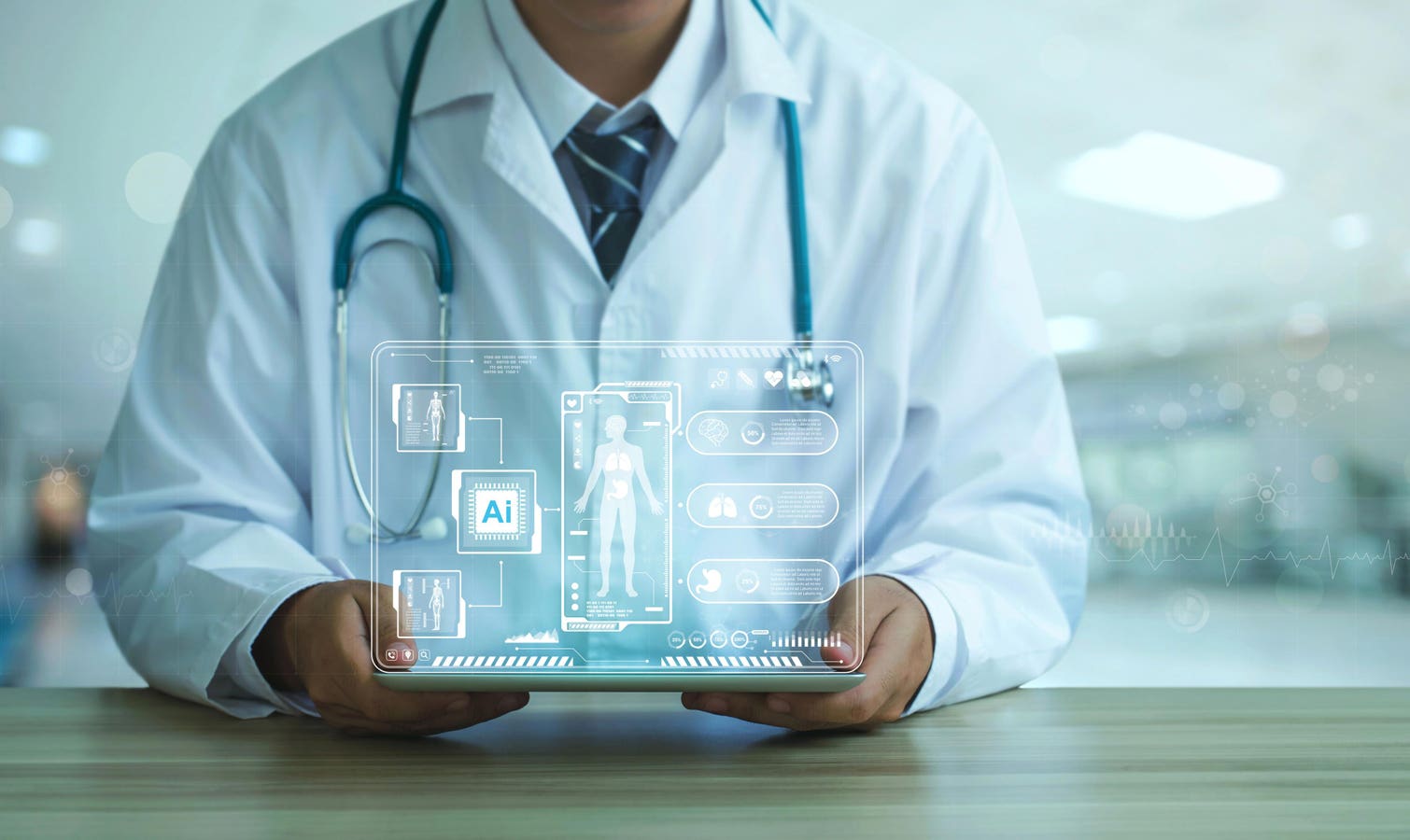AI is rapidly becoming an integral part of modern healthcare.
In highly regulated industries like healthcare, digital innovation is often slow to adopt. However, healthcare is embracing AI as quickly as almost any industry and is already seeing benefits. From simplifying surgeries, acting as an augmented intelligence tool for doctors to help with diagnoses, to improving patient outcomes, AI is rapidly becoming an integral part of modern healthcare. AI not only improves diagnostic accuracy, but also optimizes treatment plans, reduces operational costs and helps in better interaction with patients.
Added AI diagnostics
The practice and techniques of diagnosis is something that doctors take years to learn. Traditional methods for diagnosing conditions and diseases rely on the subjective interpretation of medical images, data, and patient symptoms. As a result, interpretations are subjective and may vary between practitioners. However, now with the help of AI, practitioners can use AI as an augmented intelligence tool to help provide more objectivity to the process. AI systems can analyze medical images with incredible speed and accuracy and help doctors make more informed diagnoses.
Computers are really good at quickly looking at large amounts of data and spotting patterns and outliers in the data. This proves very useful when viewing medical images. Artificial intelligence is helping doctors better diagnose a variety of different diseases and conditions by looking at X-rays, scans and medical images. For example, AI can help diagnose over fifty eye diseases by analyzing retinal scans with a high degree of accuracy. In fact, these models are getting so good that they are being shown to be as accurate as the world’s leading experts in identifying complex eye conditions, such as diabetic retinopathy and age-related macular degeneration.
By quickly processing large amounts of data such as patient records, clinical trial data, and the latest research and published medical literature, AI systems are able to quickly digest and synthesize this data and then help physicians provide evidence-based, hyper-personalized treatment recommendations that align with current medical standards and practices. This is a great example of where AI is being used as an augmented intelligence tool not to replace humans, but to help them do their jobs faster and with additional data points.
Data-driven healthcare
Predictive analytics is another model of AI that is having a significant impact on healthcare. By analyzing past and current patient data, AI systems can predict with a high degree of accuracy the likelihood of diseases and complications in individuals. This allows doctors and patients to take preventive measures before a condition becomes critical.
For patients in a hospital setting, there is a real risk of life-threatening conditions such as drug-resistant infections or sepsis. For conditions that can quickly become critical and life-threatening, early detection is essential. Now, with the help of AI, rapid early detection is possible. With the help of AI, the models are able to analyze patient data and quickly identify subtle changes in a patient’s condition that could indicate the early stages of sepsis.
Increased operational efficiency
Beyond patient care, AI is also transforming the operational side of healthcare. Hospitals and clinics are complex environments where efficiency or inefficiency can directly affect patient outcomes. AI is helping to optimize many different aspects of back office operations, from helping with planning staff to managing the supply chain.
The Mayo Clinic, an early adopter of automation and AI technologies, has implemented an AI tool to help better predict patient no-shows. By analyzing various factors such as appointment history, demographics and even weather patterns, the AI system can predict when patients are likely to miss an appointment. This information helps the clinic optimize scheduling, reduce wait times and improve overall patient care.
Similarly, AI-enabled chatbots are being adopted in many industries, and healthcare is no exception. Chatbots are being adopted to handle many routine queries and administrative tasks. This allows patients and loved ones seeking information to receive answers quickly and frees healthcare professionals to focus on patient care. For example, the United Kingdom’s National Health Service (NHS) has implemented AI chatbots to provide talking therapy to adults.
Healthcare providers face a heavy administrative burden. As a result, overworked staff create bottlenecks that slow down patient care. By having AI chatbots act as the first point of contact for the patient to perform e-triage and assessments, patients feel like their initial needs are being met while at the same time healthcare professionals are able to focus on high-value tasks higher associated with the patient.
By increasing diagnostic accuracy, enabling predictive analytics and streamlining operations, AI is already having positive impacts on the healthcare industry. As AI continues to evolve, its integration into healthcare will only deepen, leading to more personalized, efficient and effective patient care.
